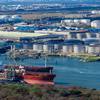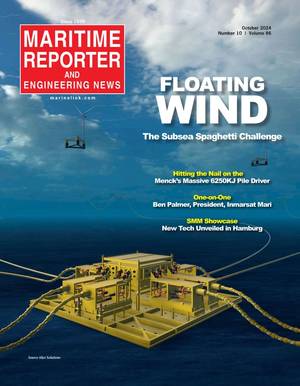A leading U.S. tanker brokerage has warned that the newly-opened Khazakstan to Novorossiisk oil pipeline will need between 17 and 28 million-barrel tankers to serve it, further clogging the congested Bosphorus sea lane. New York-based Poten and Partners foresaw pipeline capacity starting at 560,000 bpd and eventually reaching 1.34 million bpd. "This level of throughput may start bumping against the upper limit of allowable tanker transits through the Bosphorus," it said.
The analysis comes in the same week that the Turkish minister for maritime affairs, Ramazan Mirzaoglu, announced a state investigation into the safety threat posed by swelling Bosphorus tanker traffic. "The Turkish straits are already at their limits. When they start carrying Kazakh oil from Novorossiisk by tankers that will deadlock the traffic at our waterways," Mirzaoglu said. The Kazakh-Russian oil pipeline was officially opened this week, and is expected to carry an average of 800,000 bpd this year to the main Black Sea oil port.
Poten said the number of tankers required depended on where the oil found its eventual market. If it found a market in northern Europe and the U.S. by forcing West African crude out of its traditional markets, then 17 million-barrel ships would be permanently needed to service the routes. The other possibility, said Poten, is that Caspian oil would find a home in Asia, and would make its way there on million-barrel tankers via the Suez Canal. This longer journey would create a permanent demand for 28 vessels.
It ruled out the Mediterrean as a potential market, on the grounds that refineries there were geared to the heavier sourer Mideast grades of crude from the Iraq-Turkey and Sumed pipelines. Turkey and its close ally - the U.S. - have promoted an alternative route for Caspian oil from Azerbaijan to Turkey's Mediterranean port of Ceyhan. Collisions are common in the Bosphorus, leading to Turkey's fears for the safety of more than 10 million people living in the country's commercial capital Istanbul. The most recent tanker collision was reported by LLoyds last Friday, involving the single-hulled Maltese-flagged tanker Fair Skies.
One of the most serious accidents was in 1994 when 30 seamen were killed and 20,000 tons of oil were spilled after the tanker Nassia collided with another vessel. Mirzaoglu said Turkey would urge that ships transiting the Bosphorus should be double-hulled and be no older than a certain age. Use of tugs and pilots by foreign captains sailing through the straits would also be strongly encouraged, he said. - (Reuters)
Featured videos

Send in the Drones (to deep, dark, confined maritime spaces)

Taking the First Step Toward Autonomy
Subscribe for
Maritime Reporter E-News
Maritime Reporter E-News is the maritime industry's largest circulation and most authoritative ENews Service, delivered to your Email five times per week











